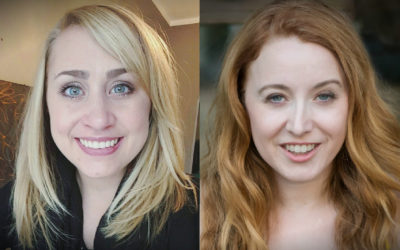Breath
Living a full and healthy life with cystic fibrosis, a chronic genetic disease that affects the respiratory system.Living with Cystic Fibrosis – my story in a nutshell
When I was born in 1979, the average survival age for a person with CF was about age 18. I was diagnosed when I was 2 ½ years old. It was “failure to thrive” that was the first indicator that something was wrong. My parents searched for an answer for two years before I received the positive diagnosis for Cystic Fibrosis. By the time of my diagnosis, my parents were relieved to finally be able to put a name on my disease. It was no longer an unknown enemy – the first step in the battle is to know what you are fighting.
Cystic Fibrosis is a recessive genetic disease that affects the way the body processes salt. Doesn’t seem like much, but this means that the cells of the lungs and digestive system don’t function as they should – the lungs become easily clogged with abnormally thick mucus, leading to respiratory infections, and the pancreas doesn’t release essential fat-digesting enzymes. As a recessive disease, the gene is passed down from the parents but the child must receive a copy of the mutated gene from both parents in order for CF to be present. If only one parent passes down a mutated gene, then the child will be asymptomatic, a carrier able to pass it on to their own children. So the gene can exist in a family for generations and nobody could be any the wiser. But if both parents are carriers of the mutated gene, there is a 25% chance that their child will have CF.

My aunt Jane as a vibrant little girl. I never got to meet her.
Nobody in my immediate family has CF, but my diagnosis was not without precedent. My father’s younger sister, Jane, had cystic fibrosis and it was the reason she only lived to age 10. Back in the 1950s when she lived, the disease was so new, and the treatments so few, that my grandmother was told not to get too attached to her little girl because she would probably not live long enough to attend elementary school. Though money was tight, the family did everything they could to afford her numerous medications and hospitalizations. Even though she lived a lot longer than anyone expected, she died long before she was able to grow up. And my grandmother still finds it hard to talk about the little girl that she lost. I think that somehow I remind her of the daughter she never got to see grow up. She has donated generously to the CF Foundation over the years, gifts named in my honor but I feel they are just as much for her daughter as for me.
I grew up knowing that I had CF. One day in about first or second grade, when my mother picked me up at school to take me to ballet class, I asked her, “When will my cystic fibrosis go away?” I remember looking over at her in the car and the look on her face, vividly to this day. And I remember what she said to me. She said that right now there wasn’t a cure, so it wouldn’t go away and it was important that I be good about doing all the treatments and medications I was supposed to be taking. But then she said, “But there are doctors looking for a cure. There are a lot of scientists digging for it!” In my eight-year-old brain I pictured rugged, Indiana Jones looking scientists with boonie hats and pickaxes digging up cures like they were dinosaur bones. That mental picture has never really left me and I mentally equate medical researchers in lab coats with Indiana Jones. The truth is a little more like Jurassic Park, but more on that later.
As I grew older, the treatments and medications got better and better. There gradually became more preventive drugs as well as new antibiotics that we could add to the arsenal to fight infections. The average survival age kept getting higher and higher. By the time I graduated from high school it was about age 30. As I write this now, I’m about to turn 35 and the average life expectancy is about age 37 here in the United States. By another metric, “median predicted survival age,” half the people with CF will die by the time they’re 40, but that also means that half will survive longer. But an average is just an average. I’ve never been afraid of the statistics. I have every intention of beating the odds and living to ripe old age.
Most people fear the appearance of lines on their face when they look in the mirror. Me – I hope to wear them like a badge of honor. Because it means I made it. And I plan to have one hell of a ride getting there.
Further reading: posts from the blog
Fluid Dynamics
I think it's working. Four months ago, I started a new drug called Symdeko - the second generation drug that treats the actual root cause of CF on a molecular level (it doesn't work for everyone, but does for those with a particular mutation that I have called...
How CF can make you a better opera singer
“How are you able to sing opera when you have CF?!”
I’ve never really known how to answer that question . . . since CF is a chronic, genetic disease, I’ve never known life without it, and I have no frame of reference for what singing would be like otherwise. Asking me how I’m able to sing is like asking a sea turtle how they’re able to swim so far with that huge shell on their back…. they would probably look at you cockeyed and say, “Why would it stop me? I was made to swim, and this is part of who I am.”
Breath of Heaven
Music brought us together. CF keeps us apart. In January of this year, I made a new friend. Her name is Ashley Ballou-Bonnema. Truth be told, I honestly don't remember how I found her blog, Breathe Bravely. But I do know that from the moment I first...



